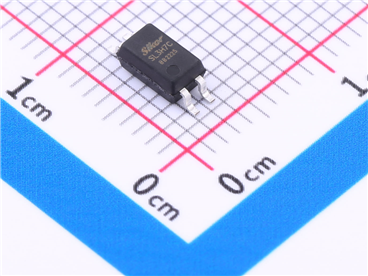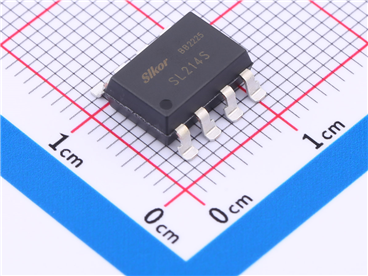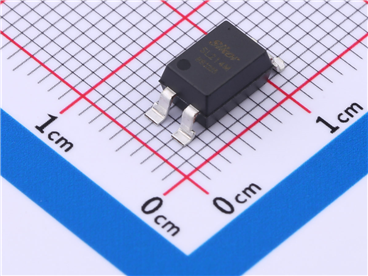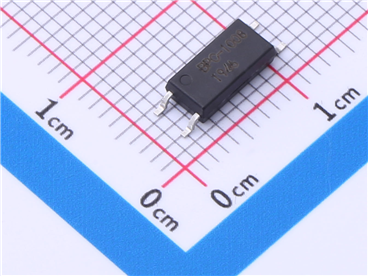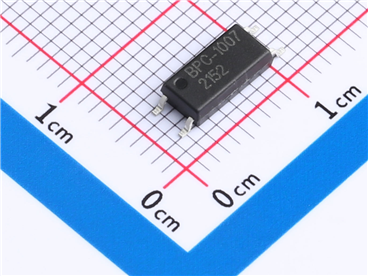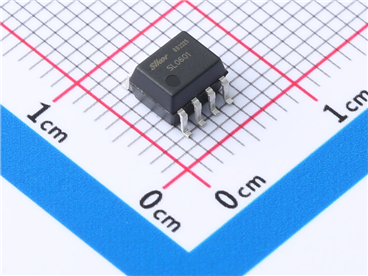We have reviewed some of the major events in the semiconductor industry that took place in the first half of 2024. Next, we will look back on the significant events in the second half of the year.
【July】
Samsung Electronics Union Launches Nationwide Strike
On July 8, 2024, over 6,500 employees of Samsung Electronics in South Korea initiated a three-day large-scale strike, demanding an additional paid vacation day, a higher salary increase, and changes to the current performance bonus calculation method. On July 10, the largest union organization of Samsung Electronics, the "National Samsung Electronics Union," announced the start of an indefinite strike. The union initially planned a three-day strike beginning July 8, followed by a five-day strike starting on July 15. However, due to the management's lack of willingness to engage in dialogue, the union decided to initiate an indefinite strike.
Subsequently, on August 5, after nearly a month of strikes and failed labor negotiations, the National Samsung Electronics Union decided to resume work, considering the economic pressure on its members. However, the union stated that it would continue to exert pressure on Samsung Electronics by collaborating with the political community and civil organizations. The union also indicated that it might adopt guerrilla-style strikes or utilize public opinion and collaboration with political and civil groups for a "long-term struggle."
Despite the month-long strike, Samsung Electronics maintained that its production lines were not affected. The company stated that it would "do its best to resolve this matter satisfactorily."
Microsoft "Blue Screen" Incident
On July 19, 2024, a large number of Windows devices worldwide experienced a blue screen crash. The incident was caused by an error in an update from CrowdStrike’s cybersecurity platform, which led to blue screen issues for users with the software installed.
After the incident, Microsoft stated that the underlying technical issue had been resolved, but some Microsoft 365 applications and services were still experiencing "residual impacts." The incident caused widespread disruption across various industries, including transportation and healthcare. Delta Air Lines in the United States even filed a $500 million lawsuit against Microsoft and CrowdStrike.
The "Microsoft Blue Screen" incident, originating from a single technical update, highlighted not only technical issues but also prompted reflection on the need for countries to strengthen their cybersecurity infrastructure, reduce reliance on external technologies, and ensure the stability of critical infrastructure.
"Global Governance of Artificial Intelligence Shanghai Declaration" Officially Released
On July 4, 2024, at the 2024 World Artificial Intelligence Conference and the High-Level Conference on Global Governance of Artificial Intelligence, the "Global Governance of Artificial Intelligence Shanghai Declaration" was published.
The declaration calls for promoting the development of artificial intelligence, ensuring AI safety, building a governance system for AI, enhancing social participation and public literacy, improving the quality of life and social welfare, and urges all parties to actively respond, cooperate, and work together to ensure that AI benefits all of humanity.
【August】
Infineon Opens World's Largest SiC Wafer Fab
On August 8, 2024, Infineon officially opened its new silicon carbide (SiC) wafer fab, Kulim 3, in Kulim, Malaysia. This fab will become the world's largest 200mm SiC power semiconductor wafer factory.
The first phase of the fab will focus on producing SiC power semiconductors and will also include Gallium Nitride (GaN) epitaxy. The second phase will create the world's largest and most efficient 200mm SiC power wafer fab.
Additionally, Infineon announced that it had secured new design orders worth around €5 billion, along with approximately €1 billion in prepayments from existing and new customers to support the continued expansion of Kulim 3. Some of these design orders are from six major automotive OEMs (Original Equipment Manufacturers).
AMD Acquires Europe's Largest Private AI Lab, Silo AI
On August 13, 2024, AMD announced the completion of its acquisition of Silo AI, the largest private AI lab in Europe. The transaction was valued at approximately $665 million (€477 million), and AMD paid in full with cash. Silo AI will join AMD’s AI division (AIG).
AMD stated that this acquisition underscores its commitment to providing end-to-end AI solutions based on open standards, as well as its strong collaboration with the global AI ecosystem.
In the past year, AMD has made investments in over a dozen AI companies, totaling more than $125 million. Additionally, AMD has acquired companies such as Mipsology and
Nod.ai.
EU Imposes Final Anti-Subsidy Tariffs on Chinese Electric Vehicles
On August 20, 2024, the European Commission disclosed its draft decision to impose final anti-subsidy tariffs on pure electric vehicles (EVs) imported from China. The proposed tariffs have been slightly adjusted:
-
BYD: 17.0%
-
Geely: 19.3%
-
SAIC Group: 36.3%
-
Other cooperating companies: 21.3%
-
All other non-cooperating companies: 36.3%
-
A separate tariff rate of 9% will apply to Tesla as an exporter from China.
This decision has sparked strong opposition from Chinese automakers and major European car manufacturers. Executives from companies like BMW, Volkswagen, and Mercedes-Benz have criticized the EU’s decision to impose tariffs on Chinese EVs, calling it a wrong move that could have negative consequences. They argue that free trade and fair competition are essential for the prosperity of the global automotive industry, and protectionist measures will not help companies enhance their global competitiveness.
【September】
Volkswagen Plans to Close Factories and Lay Off Workers
On September 4, 2024, the German automaker Volkswagen Group announced its plan to shut down factories in Germany and lay off workers as part of efforts to further reduce costs. This is the first time in the 87-year history of Volkswagen that the company has planned to close a factory in Germany.
Volkswagen employs about 650,000 people worldwide, with nearly 300,000 of them working in Germany. The announcement of layoffs and factory closures is expected to have a significant impact on the German job market. Unsurprisingly, the plan was met with strong opposition from both Volkswagen's workers and labor unions.
On October 28, 2024, Volkswagen workers staged strikes and rallies in Germany, protesting the company's drastic layoffs and factory closures. Union members argued that workers were being forced to pay for the board's poor decisions, including the failure of the company's transition to electric vehicles and its pricing policies.
Recently, Volkswagen issued a statement indicating that an agreement had been reached with the unions regarding its restructuring plans. According to the agreement, Volkswagen will lay off more than 35,000 workers in Germany by 2030 and reduce the production capacity of German factories. The agreement also specifies that no German factories will be closed in the short term, although two smaller factories will cease car production and seek alternative uses.
Netherlands Expands Lithography Machine Export Controls
On September 6, 2024, the Dutch government announced an expansion of its export controls on lithography machines, extending restrictions to immersion Deep Ultraviolet (DUV) lithography equipment. If ASML wants to export the TWINSCAN NXT:1970i and 1980i models of immersion DUV lithography systems to China, it will first need to apply for an export license from the Dutch government.
In response, ASML stated that the new export requirement would lead to a more coordinated and unified process for issuing export licenses.
China's Ministry of Commerce issued a statement expressing dissatisfaction with the expanded export controls. The statement emphasized that the Dutch side should act in line with international trade rules and the broader framework of China-Netherlands economic cooperation. It urged the Netherlands to respect market principles and contract spirit, avoid hindering normal cooperation between the two countries' semiconductor industries, and refrain from misusing export control measures. The statement stressed the importance of safeguarding the mutual interests of Chinese and Dutch enterprises and maintaining the stability of the global semiconductor supply chain.
IBM Shuts Down China R&D Departments
On September 12, 2024, following the announcement that IBM would withdraw from its two key research departments in China—the IBM China Systems Lab (CSL) and the IBM China Development Lab (CDL)—CEO Arvind Krishna confirmed in an internal online meeting with IBM employees on September 10 that the closure of its China R&D operations was final and irreversible.
Krishna clarified that the global strategic hubs for IBM would include locations in the U.S. (Austin and San Jose), Canada (Toronto), Poland (Krakow), Ireland (Dublin), and India (Bangalore and Kochi), but China would no longer be part of these key regions.
Earlier, on August 26, 2024, IBM had officially announced the closure of its R&D departments in China, resulting in the layoff of over 1,600 employees. Following this organizational restructuring, IBM is expected to have no R&D operations remaining in China.
Vishay Announces Factory Closures and Layoffs
On September 25, 2024, Vishay Intertechnology revealed a restructuring plan that includes the closure of three manufacturing plants and the layoff of approximately 800 workers.
The three factories being shut down include a
diode packaging facility in Shanghai, China, as well as resistor factories in Fichtelberg, Germany, and Milwaukee, Wisconsin, USA. The closures are expected to be completed by the end of 2026, with production transfers beginning in the fourth quarter of 2025.
The restructuring also involves a reduction of about 365 direct manufacturing employees, as well as the elimination of 170 jobs in sales, general administration, and support functions. The production and operational transfers are expected to result in a further reduction of 260 employees in manufacturing and production departments.

